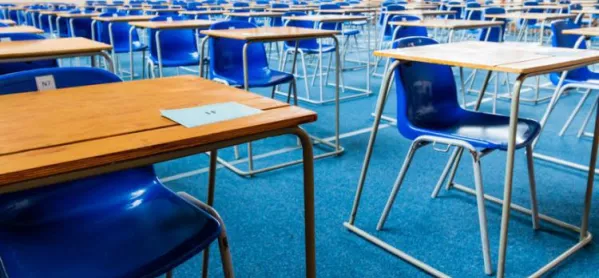Ofqual has today launched a consultation on proposals aimed at clamping down on the potential for teacher-examiners to engage in cheating.
The proposals come after last summer’s exam season was rocked by two incidents in which teachers were alleged to have leaked questions to their students which they had helped set.
Here are four things which Ofqual says awarding bodies should consider doing to reduce the potential for abuse:
- Conflict of interest registers - Exam boards will have to “maintain up to date records of all conflicts of interest relating to teachers who have seen confidential assessment materials”.
- More support for teachers - Ofqual says that boards should “should support teachers to do the right thing, through appropriate training and contractual obligations”. This could include requiring “annual declarations” from teacher-examiners that they understand and at all times comply with their duties to “protect the confidentiality of assessment materials”.
- Not letting teachers know when their questions will appear - Updated guidance will advise that boards can protect against the potential for wrongdoing by ensuring “no serving teacher knows whether or when the assessment materials they have developed or seen are used”.
Ofqual said it would not seek to impose a “one size fits all approach” on exam boards, but its consultation document makes clear that it expects teachers contributing to GCSEs and A levels should generally not know when their questions will be used.
The consultation states: “We believe that for qualifications such as GCSEs, A levels and the main alternatives, the stakes of the qualification, for both students and their schools and colleges, are sufficiently high that the awarding organisation should normally manage the way it develops its assessment materials so no teacher of the qualification knows with certainty the contents of any specific assessments.”
-
Monitoring of students and teachers - Boards will have to “detect malpractice”, for example by sampling the results of students taught by teachers with prior knowledge of papers to look for “unusual patterns”.
The consultation also suggests that they could sample teacher-examiners’ lesson plans and formative assessments to look for signs they had “narrowed their teaching”.
Want to keep up with the latest education news and opinion? Follow Tes on Twitter and like Tes on Facebook




